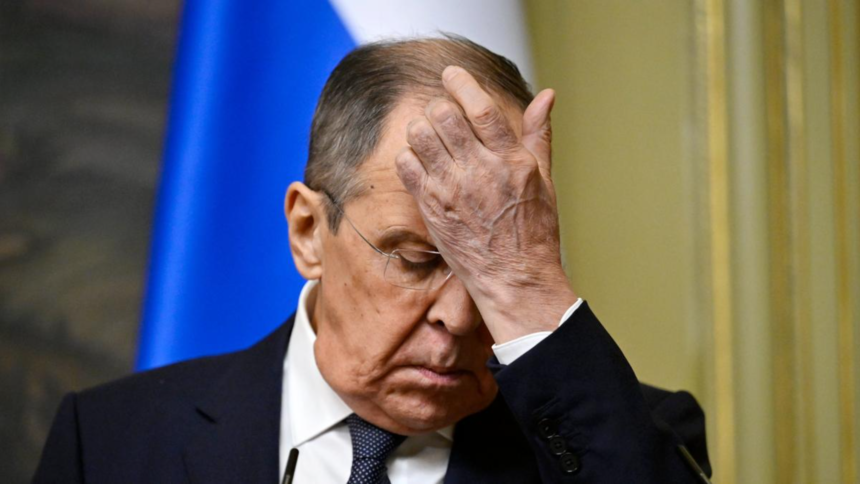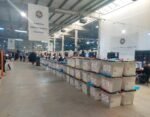On December 6, 2024, Russian Foreign Minister Sergey Lavrov made pointed accusations against the United States regarding the recent elections in Georgia. In an interview with American journalist Tucker Carlson, parts of which were published by Russian state media, Lavrov claimed that the U.S. was disregarding a positive OSCE report on the Georgian elections simply because it didn’t agree with the results. In his broader attempt to justify Russia’s anti-Western stance and challenge the role of the U.S. in global politics, Lavrov also brought up Kosovo.
The Russian state agency Tass published an article titled “Lavrov – U.S. Disregards OSCE Report on Georgia Elections Because They Don’t Like the Results.” Within a single statement, Lavrov referenced both Kosovo and Georgia.
Lavrov argued, “When the OSCE monitored elections in Russia, Belarus, Kazakhstan, they were always very critical, as they were in other countries. This time, in Georgia, the OSCE monitoring mission issued a positive report, which is now being ignored. This is the same approach taken by the United States and other Western countries when they recognized Kosovo’s unilateral declaration of independence, claiming it was self-determination.”
By mentioning Kosovo in this context, Lavrov is not offering an objective analysis but rather using the issue to challenge the legitimacy of U.S. actions and delegitimize its support for Kosovo’s independence. Russia’s strategy is to use Kosovo as a tool to promote a narrative that U.S. interventions, such as the recognition of Kosovo, have created precedents that destabilize the global order.
Lavrov also raised questions about the U.S. stance on the Georgian elections. In response to reports of irregularities in the vote, U.S. Secretary of State Antony Blinken acknowledged the positive evaluation by international observers but also noted “irregularities and sporadic violence.” “We condemn any violations of international norms and join the calls of international and local observers for a thorough investigation into all allegations related to the elections,” Blinken’s statement said. The International Election Observation Mission also reported significant irregularities in the October 26 elections in Georgia.
This interview is part of a broader pattern in which Russian officials raise unfounded claims about Kosovo whenever they are given the opportunity to speak in international forums or media interviews. Russia uses its opposition to Kosovo’s independence as a part of its broader strategy to challenge Western influence and further its interests in neighboring countries, including Georgia.
Earlier in 2024, on September 20, Lavrov remarked that Kosovo’s independence was declared without a referendum. On the same day, Maria Zakharova, Russia’s Ministry of Foreign Affairs spokesperson, described Kosovo’s independence as “fake.”
During the OSCE Ministerial Council meeting in Skopje last year, which brought together foreign ministers from 57 member states, Lavrov again used the platform to accuse the EU, NATO, and the OSCE of committing aggression against an independent country in 1999 when they bombed Serbia. He reiterated his claim that “Kosovo was taken violently from Serbia,” using this narrative to justify Russia’s actions in Ukraine.
Russian President Vladimir Putin, on September 30, 2022, declared four Ukrainian regions as Russian territories, drawing a direct parallel between Kosovo and these annexed regions. In 2022, the Russian Ministry of Foreign Affairs also used the International Court of Justice’s (ICJ) ruling on Kosovo to justify the declarations of independence by Russian-backed regions in Ukraine. This serves to align Kosovo’s independence with Russia’s interventions in former Soviet regions.
Russia continues to be a disruptive external actor, particularly in the Western Balkans, where it portrays Kosovo and the Albanian majority as hostile to Serbs.
On December 10, 2024, U.S. Ambassador to Kosovo, Jeffrey Hovenier, commented on the foreign threats facing Kosovo and the region. Speaking at the DISICON conference on information integrity, organized by the National Democratic Institute (NDI), Hovenier warned: “There are foreign actors who want to undermine Kosovo’s democracy by exploiting ethnic divisions. We cannot allow this to happen.”







